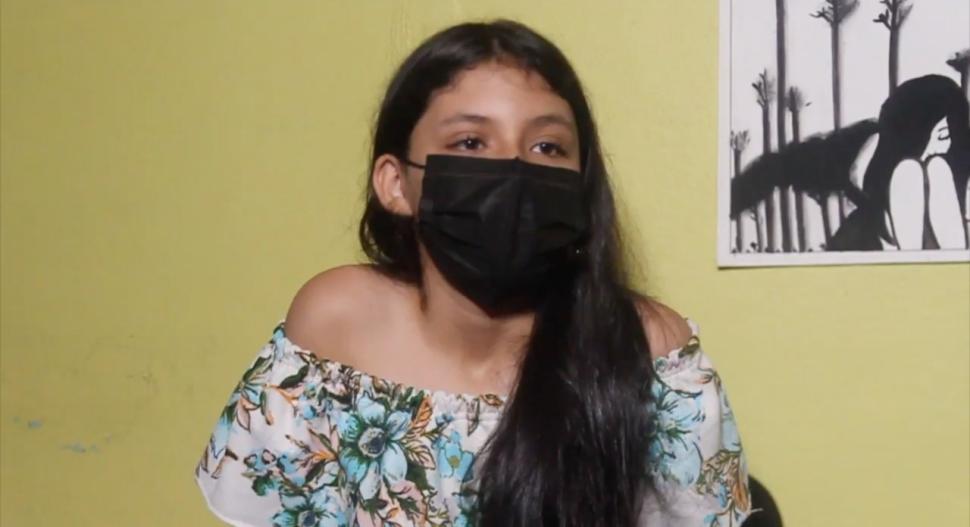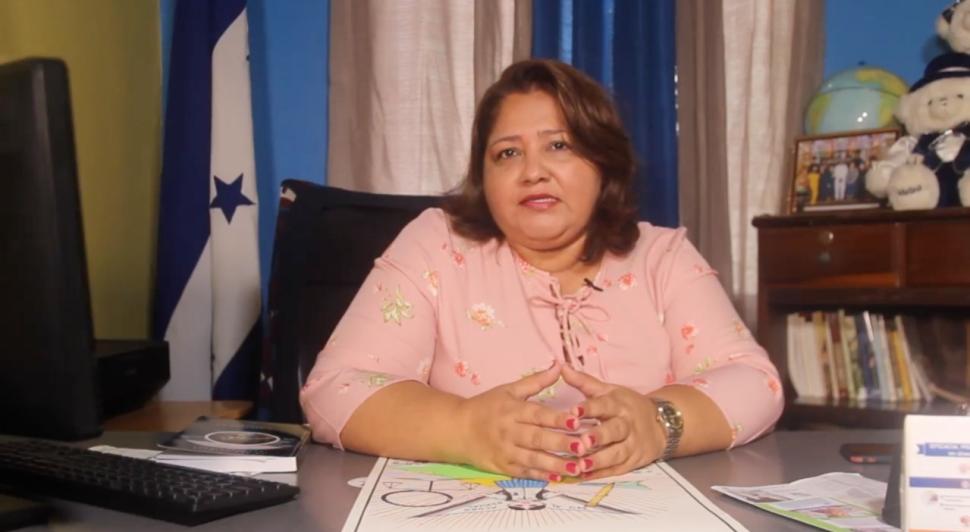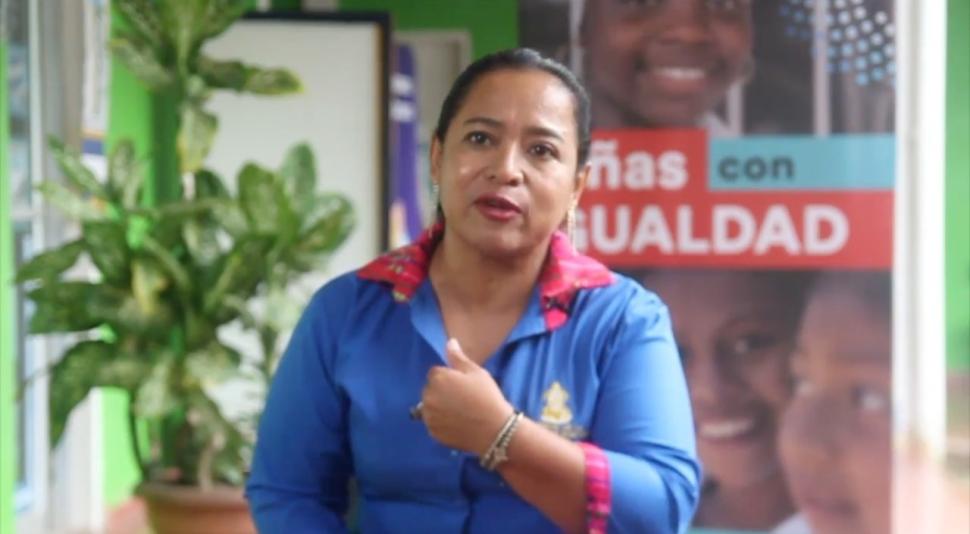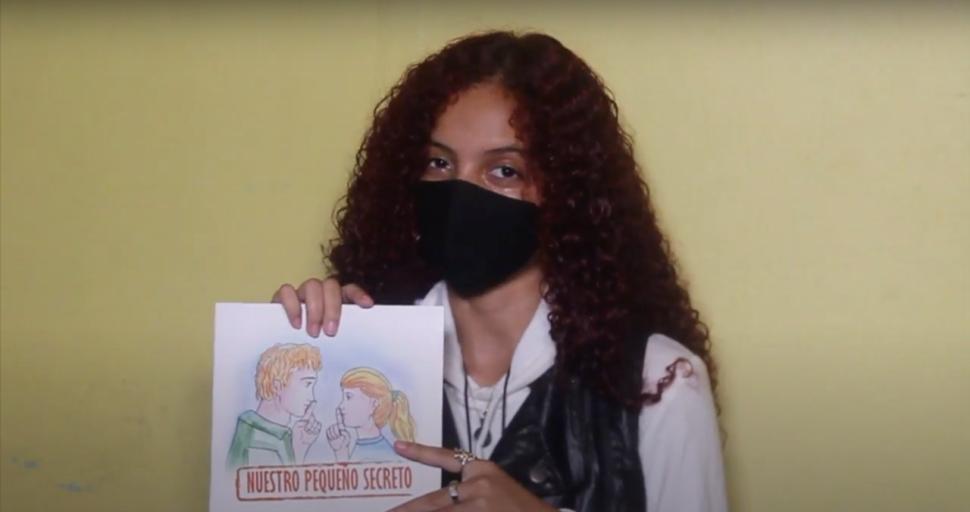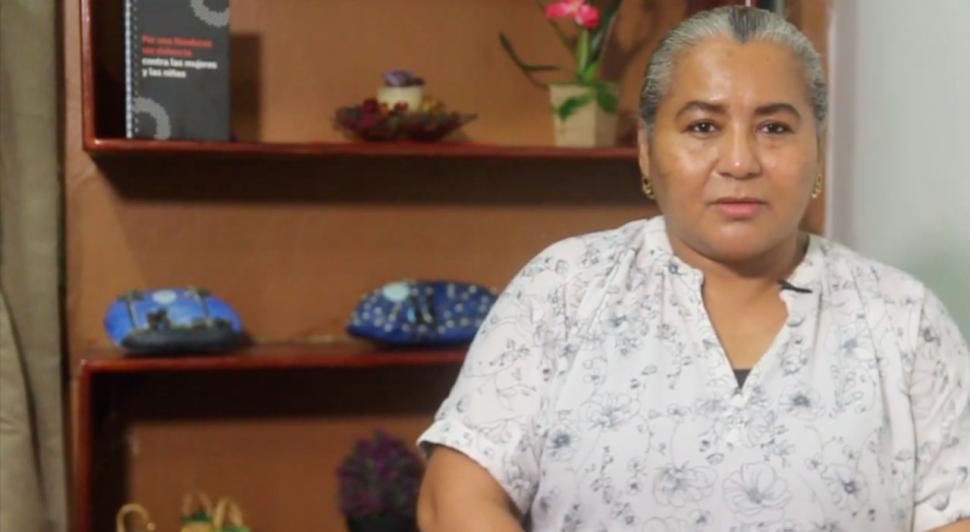Education + Art: a formula to end sexual violence in Honduras
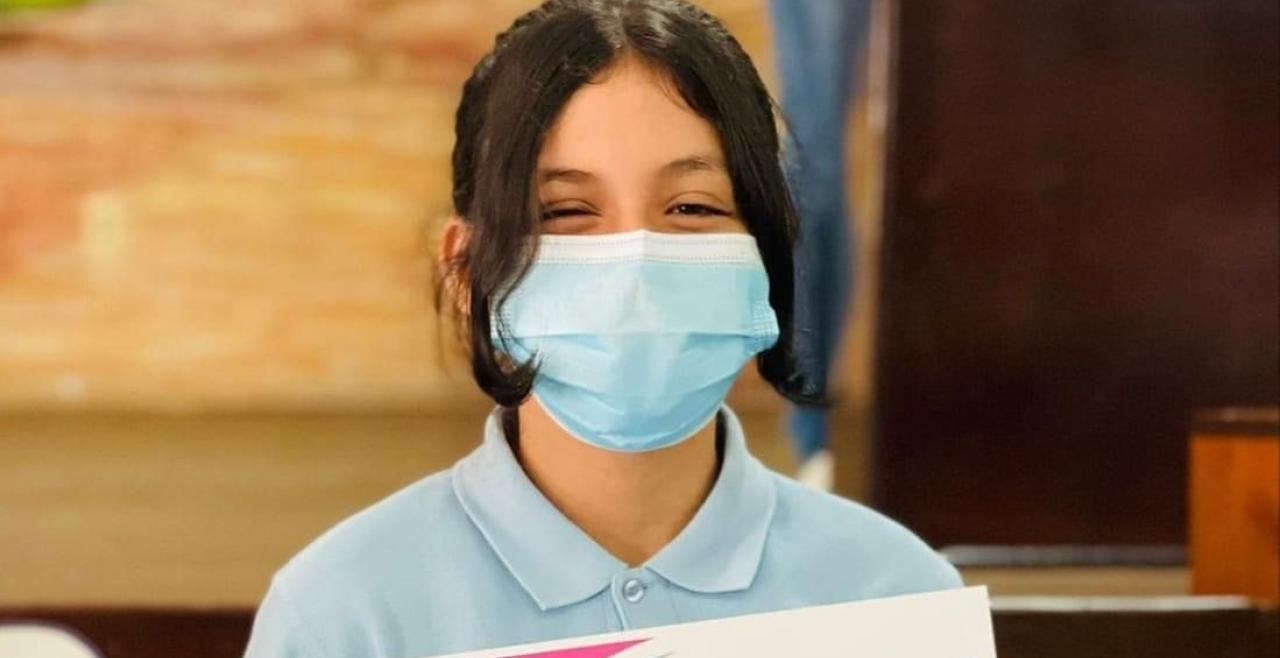
La Ceiba, HONDURAS - "I would like to help women who suffer from abuse and violence... I want to go in that direction," said Genesis Abigail Murillo Reyes, a 12-year-old student at the Elementary Education Centre "Guadalupe de Quezada" in La Ceiba and the winner of a recent poster contest.
Genesis was one of the children and adolescents who was part of the "EducArte para EmpoderArte" (Educate to Empower) Project implemented by the Centre for Health and Family Assistance (CEPROSAF) in La Ceiba. A total of 160 students from 10 educational centres participated in the sexual violence prevention training. The students received training on the prevention of sexual violence and were invited to participate in a storytelling and poster contest, which resulted in the production of 12 pieces (6 stories and 6 posters), with prizes awarded to winners in both categories.
According to the National Study of Social and Institutional Tolerance of Violence against Women, Girls and Adolescents (ENTSIVCMNA), launched in early May 2022 by the Spotlight Initiative, almost 37% of girls and adolescents in Honduras have at some point been the victim of a physical attack that put their life at risk.
Adultcentrism is the most deeply engrained social norm in Honduras (67.6%), followed by rigid gender roles (51.8%) and by the appropriation of women's bodies and sexuality (50.1%). These sexist beliefs show a clear perception that women's physical autonomy should be controlled by their parents, and that, from an early age, society seeks to control girls and adolescents.
One of the repercussions of the acceptance of these social norms is sexual abuse in minors, which was already a national emergency before the COVID-19 pandemic. The Demographic and Health Survey (ENDESA) 2011-2012 also indicated that 26.3% of adolescents between 15 and 19 years old in the district of Atlántida had been pregnant at some time.
According to a study by the United Nations Children's Fund (UNICEF) and Plan International, Honduras has the second-highest number of adolescent mothers in Latin America.
Educating to empower
The Spotlight Initiative has focused its work in several major cities in Honduras, including La Ceiba, Atlántida, on projects that invited organizations to use art, information technology and culture to address violence against women and girls. "Educate to Empower" aimed to provide children and adolescents with information to prevent sexual abuse in coordination with the Departmental Secretariat of Education and Coordination and the Network of Human Rights Defenders. It included training on the different types of abuse that children and young people may face at school or in the community.
“It has to stop. Women are not objects, they have to be treated equally.”
Genesis Abigail Murillo Reyes, 12, won first place in the poster contest. She says that her drawing represents a woman experiencing violence. "That is not right, it has to stop because women are not an object, they have to be treated equally," she says.
Genesis says it is important that from an early age, children and young people learn how to prevent violence against women and girls. She hopes that these training processes will be repeated for other children.
“The project was developed to meet the challenges of the pandemic.”
Thelma Clavasquín, director of the Gustavo A. Castañeda Elementary School Centre, says that "Educate to Empower" was embraced with great enthusiasm because it enabled the training of students and many teachers, but the project has also been replicated in "Schools for Parents" where the entire educational community was involved.
Clavasquín emphasizes that the topics addressed are often a challenge "because they are not touched at home, so the school is the only one called to address them, to sensitize our population." She says that "sometimes, some parents think that these things do not happen."
"I am grateful for this project and I am sure that the 10 schools that participated will want it to continue because there are many children who suffer abuse. Sometimes, they even think it is normal, but through the trainings they realize that it is not." The Director adds that she once heard a mother comment after training that she didn't know abuse happened. "That is shocking," she says. "We are reaching another population."
“Virtual spaces made it possible to reach homes and involve the children's parents.”
Ina Díaz, Deputy Director of Programs and Projects of the Departmental Directorate of Education of Atlántida, recognizes that the process helped teachers identify the types of behaviours shown by children who have possibly been abused. "It created competencies," she says. It also trained the children on the different types of sexual crimes.
They were able to express themselves through art, drawing and storytelling. The project reached different populations, both urban and rural, including Garifuna and mestizo children, and donations helped to support children with families that had limited resources.
Online spaces made it possible, despite limitations, to reach homes and involve the children's parents. "These families now know what abuse is.... Families and even the teachers themselves recognized it and the reports of violence increased."
“It's like having a mini-book about something that came out of my mind and that makes me feel special.”
Mirna Carolina Jankwoski Castellón, 17, wrote "Our little secret". She is a student of the José Valentín Vásquez Institute, and a winner of one of the awards. Her story dealt with themes of incest.
The project helped her to expand her knowledge and discuss difficult issues with other children. She says that her mother had never seen her work before and that "she was the one who congratulated me the most". Mirna feels happy and proud to see her work acknowledged. "It's like having a mini-book about something that came out of my mind and that makes me feel special," she says.
She hopes that girls who read her story will be inspired to seek help and not be defined by violence they've suffered. "Don't be silent because emotional pain is worse than physical pain," she says.
"There are boys and girls who prefer to be in the Educational Centre than at home."
"With this project we were able to maintain not only a virtual connection but also a personal relationship with students," says Ana Salinas, Director of the Education Department of Atlántida.
Thanks to the project, it has also been possible to identify certain attitudes and address them with psychological support. "There are children who prefer to be at the education centre rather than at home. Who knows what they are going through, but this [project] allows them to find that support," she says.
She also highlights the way in which parents became guardians for the first time. Previously, they did not imagine that their daughters and sons were exposed to this type of crime.
She concludes that it is necessary to reach other people and groups so that there is sustainability. "We must see how it can be implemented in other centres... We are also looking at how to manage the prizes for the contests through private companies and our partners, they are important to reach more young people".
By Luis Hercules

